Структура сайта
Тесты ЕГЭ по Английскому
Раздел 3. Грамматика. Часть 1
01.Раздел 3. ЕГЭ Грамматика (часть 1)(Елена Клековкина, Малколм Манн, Стив Тейлор-Ноулз, 2004-2012 годы)
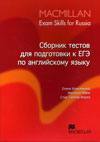
Клековкина Е.,
Манн М.,
Тейлор-Н. С.
02.Раздел 3. ЕГЭ Грамматика (часть 1) (Музланова Е.С., 2013-2014 год)
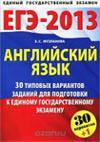
Музланова Е.С.
03.Раздел 3. ЕГЭ Грамматика (часть 1) (Соловова Е.Н., Парсонс Джон, Маркова Е.С., 2015 год)
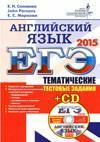
Соловова Е.Н.,
Парсонс Джон,
Маркова Е.С.
04.Раздел 3. ЕГЭГрамматика (часть 1) (Вербицкая М.В., 2015 год)
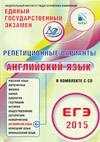
Вербицкая М.В.
05.Раздел 3. ЕГЭГрамматика (часть 1) (Вербицкая М.В., 2014 год)
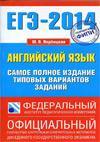
Вербицкая М.В.
06.Раздел 3. ЕГЭ Грамматика (часть 1) (Фоменко Е.А., Бодоньи М.А., 2015 год)
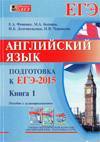
Фоменко Е.А.,
Бодоньи М.А.
07.Раздел 3. ЕГЭ Грамматика (часть 1) (Вербицкая М.В. 2015, 2016 годы)
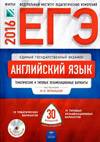
Вербицкая М.В.
08.Раздел 3. ЕГЭ Грамматика (часть 1) (Афанасьева О., Эванс В., Копылова В., 2010 год)
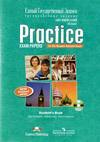
Афанасьева О.,
Эванс В.,
Копылова В.
09.Раздел 3. ЕГЭ Грамматика (часть 1) (Фоменко Е.А., Бодоньи М.А. и др., 2014 год)
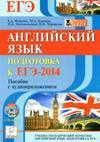
Фоменко Е.А.,
Бодоньи М.А.
Раздел 3. Грамматика. Часть 2
01.Раздел 3. ЕГЭ Грамматика (часть 2) (Елена Клековкина, Малколм Манн, Стив Тейлор-Ноулз, 2004-2012 годы)

Клековкина Е.,
Манн М.,
Тейлор-Н. С.
02.Раздел 3. ЕГЭ Грамматика (часть 2) (Музланова Е.С., 2013-2014 год)

Музланова Е.С.
03.Раздел 3.

Соловова Е.Н.,
Парсонс Джон,
Маркова Е.С.
04.Раздел 3. ЕГЭ Грамматика (часть 2) (Вербицкая М.В., 2015 год)

Вербицкая М.В.
05.Раздел 3. ЕГЭ Грамматика (часть 2) (Вербицкая М.В., 2014 год)

Вербицкая М.В.
06.Раздел 3. Грамматика (часть 2) (Фоменко Е.А., Бодоньи М.А., 2015 год)
07.Раздел 3. Грамматика (часть 2) (Вербицкая М.В. 2015, 2016 годы)

Вербицкая М.В.
08.Раздел 3. ЕГЭ Грамматика (часть 2) (Афанасьева О., Эванс В., Копылова В., 2010 год)

Афанасьева О.,
Эванс В.,
Копылова В.
09.Раздел 3. ЕГЭ Грамматика (часть 2) (Фоменко Е.А., Бодоньи М.А. и др., 2014 год)

Фоменко Е.А.,
Бодоньи М.А.
Раздел 3. Грамматика. Часть 3
01.Раздел 3. ЕГЭ Грамматика (часть 3) (Елена Клековкина, Малколм Манн, Стив Тейлор-Ноулз, 2004-2012 годы)

Клековкина Е.,
Манн М.,
Тейлор-Н. С.
02.Раздел 3. ЕГЭ Грамматика (часть 3) (Музланова Е.С., 2013-2014 год)

Музланова Е.С.
03.Раздел 3. ЕГЭ Грамматика (часть 3) (Соловова Е.Н., Парсонс Джон, Маркова Е.С., 2015 год)

Соловова Е.Н.,
Парсонс Джон,
Маркова Е.С.
04.Раздел 3. ЕГЭ Грамматика (часть 3) (Вербицкая М.В., 2015 год)

Вербицкая М.В.
05.Раздел 3. ЕГЭГрамматика (часть 3) (Вербицкая М.В., 2014 год)

Вербицкая М.В.
06.Раздел 3. ЕГЭ Грамматика (часть 3) (Фоменко Е.А., Бодоньи М.А., 2015 год)

Фоменко Е.А.,
Бодоньи М.А.
07.Раздел 3. ЕГЭ Грамматика (часть 3) (Вербицкая М.В. 2015, 2016 годы)

Вербицкая М.В.
08.Раздел 3. ЕГЭ Грамматика (часть 3) (Афанасьева О., Эванс В., Копылова В., 2010 год)

Афанасьева О.,
Эванс В.,
Копылова В.
09.Раздел 3. ЕГЭ Грамматика (часть 3) (Фоменко Е.А., Бодоньи М.А. и др., 2014 год)

Фоменко Е.А.,
Бодоньи М.А.
Тесты ОГЭ/ГИА по Английскому
Раздел 3. Грамматика. Часть 1
01.Раздел 3. ГИА Грамматика (часть 1) (Мария Вербицкая, Малколм Манн, Стив Тейлор-Ноулз)
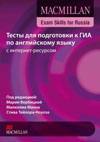
Вербицкая М.,
Манн М.,
Тейлор-Ноулз С.
02.Раздел 3. ГИА Грамматика (часть 1) (Гудкова Л.М, Терентьева О.М., 2016 год)
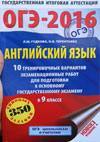
Гудкова Л.М,
Терентьева О.М.
03.Раздел 3. ГИА Грамматика (часть 1) (Гудкова Л.М., Терентьева О.М., 2015 год)
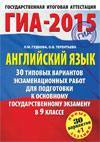
Гудкова Л.М.,
Терентьева О.М.
04.Раздел 3. ГИА Грамматика (часть 1) (Трубанева Н.Н., 2015 год)
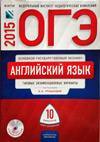
Трубанева Н.Н.
05.Раздел 3. ЕГЭ
Грамматика (часть 1) (Терентьева О.В., Гудкова Л.М., 2014 год)
Терентьева О.В.,
Гудкова Л.М.
Раздел 3. Грамматика. Часть 2
01.Раздел 3. ГИА Грамматика (часть 2) (Мария Вербицкая, Малколм Манн, Стив Тейлор-Ноулз)

Вербицкая М.,
Манн М.,
Тейлор-Ноулз С.
02.Раздел 3. ГИА Грамматика (часть 2) (Гудкова Л.М, Терентьева О.М., 2016 год)
03.Раздел 3. ГИА Грамматика (часть 2) (Гудкова Л.М., Терентьева О.М., 2015 год)

Гудкова Л.М.,
Терентьева О.М.
04.Раздел 3. ГИА Грамматика (часть 2) (Трубанева Н.Н., 2015 год)

Трубанева Н.Н.
05.Раздел 3. ГИА Грамматика (часть 2)
“Правила написания сочинения ЕГЭ по английскому языку“
your-teachers.ru
ЕГЭ & ГИА words
recognize | распознавать | recognizable | опознаваемый |
construct | строить | construction | строительство |
research | исследовать | researcher | исследователь |
equip | оборудовать | equipment | оборудование |
equipped | оборудованный; оснащённый | ||
compare | сравнивать | comparison | сравнение; сопоставление |
comparable | сравнимый; сопоставимый | ||
incomparable | несравнимый | ||
history | история | historical | исторический |
prehistoric | доисторический | ||
historian | историк | ||
historically | исторически | ||
detail | подробность | detailed | подробный |
predict | предсказывать | predictable | предсказуемый |
unpredictable | непредсказуемый | ||
similar | подобный | similarities | совпадения |
play | играть | player | игрок |
differ | изменять | difference | различие; отличие |
indifference | безразличие; равнодушие | ||
different | разный; отличный | ||
indifferent | безразличный; равнодушный | ||
profession | профессия | professional | профессиональ |
unprofessional | непрофессиона любительский | ||
particular | особый; особенный; определённый | particularly | особенно |
nation | нация | national | национальный |
nationality | национальность | ||
popular | популярный | popularity | популярность |
freeze | замерзать | frozen | замёрзший |
freezing | ледяной | ||
explore | исследовать | explorer | исследователь; путешественник |
exploration | исследование | ||
unexplored | неисследован | ||
able | способный | unable | неспособный |
disable | отменять | ||
enable | позволять | ||
ability | способность | ||
success | успех | successful | успешный |
successfully | успешно | ||
unsuccessful | безуспешный; неудачный | ||
wealth | богатство | wealthy | богатый; состоятельный |
solve | решать | solution | решение |
solvation | спасение | ||
sell | продавать | sale | продажа; распродажа |
sold | проданный | ||
contribute | вкладывать | contribution | вклад |
achieve | достигать | achievement | достижение |
child | ребёнок | children | дети |
childhood | детство | ||
neighbor | сосед | neighborhood | соседство |
young | молодой | youth | молодость; юность |
emotion | эмоция | emotional | эмоциональный |
develop | развивать | development | развитие |
developer | разработчик | ||
die | умирать | dead | мёртвый |
death | смерть | ||
produce | производить | production | производство |
produced | произведённый | ||
arrive | прибытие | arrival | прибытие |
use | использовать | useful | полезный |
useless | бесполезный | ||
economy | экономика | economical | экономический |
grow | расти | growth | рост |
wide | широкий | widen | расширять |
width | ширина | ||
hard | твердый | harden | делать твердым; укреплять |
strength | сила | strengthen | усиливать |
inhabit | жить, обитать | inhabitant | житель; обитатель |
inhabitation | жильё | ||
globe | шар; глобус | global | глобальный; всемирный |
confident | уверенный | confidence | уверенность |
long | длинный | length | длина |
lengthen | удлинять | ||
science | наука | scientist | учёный |
scientific | научный | ||
see | видеть | sight | зрение; вид; взгляд |
agree | соглашаться | agreement | соглашение |
understand | понимать | understandable | понятный |
respond | отвечать | response | ответ |
require | требовать | requirement | потребность |
commerce | торговля; коммерция; | commercial | торговый; коммерческий |
tradition | традиция | traditional |
your-teachers.ru
Английский язык. Тесты ЕГЭ. Грамматика, часть 1. Аналитика

Вербицкая М.В.
Кол. | П р а в и л о |
30 | степень сравнения |

Клековкина Е., Манн М., Тейлор-Н. С.
Кол. | П р а в и л о |
34 | past simple |

Музланова Е. С.

Фоменко Е.А.,
Бодоньи М.А.

Афанасьева О.,
Эванс В.,
Копылова В.

Соловова Е.Н., Парсонс Джон, Маркова Е.С.

Вербицкая М.В.

Вербицкая М.В.

Фоменко Е.А.,
Бодоньи М.А.
Варианты ответов составлены Игорем Шавкуновым
Ответы надиктованы Джоржем Долом
your-teachers.ru
Словообразование на ЕГЭ. Задания 26 — 31.
Школьники сдали ЕГЭ и я, окрыленная свободным временем и летом, представляю следующую статью из цикла “Капля в море, или все, что вы хотели знать о ЕГЭ по английскому”.
Вслед за великой и ужасной Грамматикой (которая на деле не такая страшная, как ее малюют) перейдем к заданиям 26 – 31, которые проверяют знание лексики или объем словарного запаса уже почти бывшего школьника.
Общая информация
Эта часть раздела “Грамматика и лексика” Единого государственного экзамена по английскому языку также почти не отличается от аналогичного раздела ОГЭ, только слова в ней посложней и приставки-суффиксы разнообразнее.
Преподаватель, уже знакомый с форматом экзамена, про себя подумал “не то слово, посложней и разнообразнее”, потому что в этих заданиях ЕГЭ по английскому языку проверяется лексика уровня В1/В2 и умение образовывать от нее однокоренные слова при помощи разнообразных аффиксов. Кстати, есть сайт, который позволяет посмотреть уровневую принадлежность того или иного слова. Посмотрите, как удобно – вводишь интересующую лексическую единицу, а вам – и ее уровень, и все части речи, которые можно от нее образовать, и устойчивые выражения с ней.
Очень бы рекомендовала ученикам выписывать слова именно таким образом.
Так как заданий всего 6 (26 – 31), за их правильное выполнение можно получить 6 баллов.
Задания 26 – 31
Как и в ОГЭ, при прорешивании этого раздела рекомендую следующий алгоритм действий:
- Прочитать все предложение и внимательно посмотреть, что окружает пропуск. На основании окружения делать выводы о частеречной принадлежности (подробнее об этом самом “окружении” в параграфе “Лайфхаки” ниже).
- Желательно еще перевести, чтобы быть точно уверенным в части речи и смысле слова (он, то есть смысл, может оказаться прямо противоположным, тогда нам потребуется отрицательная приставка или суффикс).
- Если необходимое слово неизвестно, советую воспользоваться приведенной ниже таблицей суффиксов и приставок. Ее даю ученикам в самом начале занятий и при обнаружении “неизвестного” слова, смысл и часть речи которого понятны, обращаемся к схеме и пытаемся вычислить нужную приставку или суффикс. Да, она выглядит мудрено и ученики поначалу путаются, но после 2 месяцев работы по ней ситуация улучшается.
- Проверить орфографию! Увы и ах, правильно угаданное слово, написанное неправильно, баллов не принесет.
- Перенести ответы в бланк ЗАГЛАВНЫМИ буквами
Не рекомендую никому полагаться только на перевод слова, потому что он может подсказать нам неправильную часть речи.
Например, предложения “Learning languages is becoming a popular hobby with children and adults. It’s not only interesting but very __________________, too. USE” переводятся как “Изучение языков становится популярным хобби среди детей и взрослых. Это не только интересно, но и очень ПОЛЕЗНО”. На основании перевода можно сделать ошибочный вывод, что в пропуске стоит наречие usefully. На деле же нам нужно прилагательное useful. Об этом можно догадаться по нескольким факторам: связке is, после которой следует именная часть, то есть имя прилагательное или существительное, однородному прилагательному interesting и наречию very (а наречия у нас определяют прилагательные или глаголы) перед пропуском.
Лайфхаки
А вот подсказки, которые помогут сделать вывод о нужной части речи:
Существительное
- В самом начале предложения перед сказуемым (________ is a sign of bad character. RUDE)
- После прилагательного (She has a very pleasant ________. PERSONAL)
- После существительного в притяжательном падеже (This is everyone’s _____________. RESPONSIBLE)
- После артикля (I love autumn because of the _________ of its coour. RICH).
- После предлога (People complain about the lack of ____________. CREATIVE)
- После местоимения (I love her _________. BEAUTIFUL)
- После числительного (There were more than 1000 _________. COMPETE)
Если образовываете существительное, важно объяснить себе, в единственном или множественном числе оно стоит. Это можно понять по артиклю (неопределенный артикль “а” будет перед существительным в единственном числе), форме глагола (отсутствие или наличие окончания -(e)s в настоящем времени) и местоимениям (this, that будут указывать на единственное число, these, those, some – на множественное).
Глагол
- После существительного в роли подлежащего (Travel _______ the mind. BROAD)
- В начале повелительного предложения (Let’s _________ and make a conclusion. SUMMARY)
- После вспомогательного глагола (We will _______ all your dreams. REAL)
- После частицы to (We are going to _________ it. FULFILLMENT)
Прилагательное
- Перед существительным и обычно после артикля (It was a _______ road. DIFFICULTY), после другого прилагательного (My brother likes wearing big ______ trousers. BAG) или после предлога (Everything is ready for __________ elections. PRESIDENT)
- Как составное именное сказуемое после глагола-связки быть (It was absoutely _______. TASTE) или после другого глагола (The food looks __________. TASTE)
Наречие
- После глагола (We arrived ________ on the shore. SAFE)
- В начале предложения как вводное слово (____________, we were lost. OBVIOUS)
- Перед прилагательным (He was ___________ right. ABSOLUTE)
Еще раз для учеников, которые не понимают “Что делать, если я не знаю слова, которое написано справа?!”
- Подумать, какая часть речи должна быть в пропуске.
- Подумать, не имеет ли это слово противоположного значения.
- Если существительное, задуматься о числе.
- Подбирать из известных суффиксов тот, который “звучит” лучше.
- Проверить написание.
Пример из демоверсии 2016
В задании 26 перед пропуском стоит связка is, после – прилагательное wrong. Согласно приведенным выше подсказкам подходит наречие. Переводим предложение: “Это абсолютно неправильно”. Звезды сошлись, перед нами – наречие! Самое легкое, просто дописываем суффикс -ly, получается ABSOLUTELY.
Задание 27 радует артиклем перед пропуском и существительным (к которому относится артикль) после пропуска. Единственный вариант – прилагательное EXTENSIVE или EXTENDED. Если ученик его не знает, подобрать суффикс самому может быть проблемно, потому что надо еще и конечную d менять на s. Увы и ах, так со многими частями речи – аффикс добавь, да еще и буквы в основе поменяй, и нет на это никакого правила.
А в задании 28 кроется та самая трудность перевода, о которой я писала выше. Correct, clear pronunciation is … if … Правильное, четкое произношение ВАЖНО, если …. Перед пропуском стоит глагол-связка, после – начинается новое предложение, и два этих фактора заставляют задуматься о составном именном сказуемом, где именная часть будет выражена прилагательным ESSENTIAL.
Пропуск под номером 29 также намекает на прилагательное, но у нас же справа оно уже написано?! Каждый год по несколько раз объясняю, что если написано прилагательное и нужно вставить прилагательное, выход один – добавить отрицательный префикс (un/in/im/ir/il или суффикс – less). Но ученики с завидным постоянством забывают именно этот момент и пугаются этой ситуации, не знаю, почему… Правильный ответ здесь – UNFAMILIAR
В задании 30 пропуск на месте подлежащего, то есть нам нужно существительное. Справа уже есть RUSSIA, подбираем однокоренное – Russian. Смотрим на have после пропуска, нас озаряет, что после Russian было бы has, пишем в бланк RUSSIANS.
Задание 31 похоже на задание 26, только пропуск стоит после глагола и перед зависимым от глагола предлогом. Определять глагол у нас может наречие, поэтому дописываем – ly и правильный ответ GREATLY.
Вот так выглядит правильно заполненный бланк для заданий 26 – 31:
Советы по подготовке
Как бы я советовала готовить к заданиям 26 – 31 ЕГЭ по английскому языку:
- При прохождении новой лексической темы выписывать слова в специально заведенный словарь сразу со всеми производными, принадлежащими другим частям речи и зависимыми предлогами, если таковые имеются (как показано на картинке с сайта British Council).
- Забивать эти слова в Quizlet и повторять.
- Составлять с ними тесты для проверки на уроке, рассказы, употреблять в письмах и эссе, подчеркивая новую лексику, выписанную по этой теме. (В идеале, прошли тему – написали сочинение или письмо по ней.)
- Читать адаптированные (если позволяет уровень, и неадаптированные) книги, выписывать оттуда новые слова (около 10 за главу) и пересказывать на занятии с употреблением этих самых новых слов.
Откуда же брать всю эту лексику?
Так как все ЕГЭшники, которых я видела, обращались ко мне в 11 классе с шатким уровнем B1, я не прохожу с ними УМК, а по своей программе подготовки к ЕГЭ изучаю новые слова по следующими пособиями:
Но если Вам попался счастливый обладатель B2 или Вы готовите к экзамену уже своего выпестованного ученика, вполне можно взять и УМК, например,
или
Еще коллеги очень рекомендуют для сильных учеников Upstream именно B2 .
На этом все, всем удачи в подготовке!
P.S. Еще про ЕГЭ можно почитать ниже по ссылкам.
Про разделы и стратегии выполнения заданий:
Аудирование или задания 1 — 9
Чтение или задания 10 — 18
Грамматика или задания 19 — 25
Лексика или задания 32-38
Личное письмо или задание 39
Обзоры учебников для подготовки к экзамену и как начать к нему готовить:
Как начать готовить к ЕГЭ
Учебники для подготовки к письменной части. Обзор
Учебники для подготовки к устной части. Обзор
Все учебники для подготовки к ЕГЭ. Видеообзор
Также можно ознакомиться с содержанием Плана подготовки к ЕГЭ.
4languagetutors.ru
Материал для подготовки к ЕГЭ (ГИА) по английскому языку (9, 10, 11 класс) на тему: Тренировочные упражнения для подготовки к разделу лексика- грамматика ЕГЭ по английскому языку
Exercises
NOUNS
- Write the plurals
brother | brothers | woman | |
match | box | ||
camera | baby | ||
photo | person | ||
church | secretary | ||
radio | thief | ||
sandwich | foot | ||
door | wolf | ||
lady | tomato | ||
gentleman | man | ||
tooth | watch | ||
key | child | ||
teacher | boy | ||
deer | monkey | ||
leaf | piano | ||
city | potato |
- Write the correct form of the nouns
2.The bay has got two new _____. 3.Alex saw some _____ running across the floor.
4.If a houseplant is given too much water, its lower____turn yellow. 5.New scientific ____ are made every day in ______. 6.In the mountains we saw some_____, _______ ______ and wild ______. 7. I can see trees and _____ outside the window. | MATCH TOOTH MOUSE LEAF DISCOVERY LABORATORY WOLF FOX DEER SHEEP BUSH |
- Complete the sentences with the possessive form of the nouns
| BOY BOYS CHILDREN CHILD WOMAN WOMEN SISTER |
- Add apostrophes to the possessive nouns
- Jims last name is Smith.
- Jim’s last name is Smith.
- Bobs cat likes to sleep on the sofa
- My teachers names are MS. Rice and MR. Molina.
- My mothers first name is Maria.
ADJECTIVES
1.Write the comparative and the superlative forms of the following adjectives.
happy
young
shallow
difficult
dirty
patient
hot
comfortable
brave
friendly
ridiculous
late-later
little
2.Complete the sentences using the correct form of the adjectives in brackets .
- Jill’s a ________ (intelligent) person than my brother.
- Kate was the_________ (practical) of the family.
- Greg felt __________ (bad) yesterday than the day before.
- This cake is the ____________ (good) I’ve ever tasted.
- Jack was the________ (tall) of the two.
- Jack is the__________ (clever) of the three brothers.
- If you need any ___________ (far) information, please contact our head office.
- The sinking of Titanic is one of _____________ (famous) shipwreck stories of all time.
- Please, send the books back without_________ (far) delay.
- The deposits of oil in Russia are the __________ (rich) in the world.
- Could you come a bit _______ (early) tomorrow?
- I like this song _________ (well) than the previous one.
- Which of these two performances did you enjoy ________ (much)?
PRONOUNS
1. Fill in the gap with the correct object pronoun.
- Who is that lady? — Why are you looking at __________?
- Do you know that young handsome man?-Yes, I study with __________.
- Please, listen to _______. I want to express my point of view.
- These puppies are so nice! Do you want to look at ______.
- We like this house. We’re going to buy _________.
- He can’t see _______ because we are sitting in the last row.
- Where are the keys to our flat? I can’t find _______.
- Where is Ann? I want to talk to _________.
- This snake is poisonous. I’m very afraid of _______.
- Don’t wait for _______ for dinner. I’ll return very late at night.
- He left Polotsk long ago. I haven’t seen _______ since.
- You can fully rely on _______. We won’t let you down.
2. Complete the sentences with reflexive pronouns.
- I am angry with __________.
- He fell down and hurt __________.
- Tell me more about __________.
- She believes in __________.
- We are sure of __________.
- They did everything __________.
- Did you translate the text __________.
- I saw everything __________.
- The knife was sharp, and she cut __________.
- They introduced __________.
- Can you do many things _________?
- Does your friend Nick often talk to you about _________?
- Did your mother buy anything for _________ last week?
- Are you always sure of _________?
- Do you believe in _________?
- Did the pupils answer all the questions _________?
- Did you make the dress ______________ .
3. Complete the sentences using possessive pronouns.
- This is my mum. _________ name’s Jess.
- These are my sisters. ________ names are Mary and Dina.
- These are my parents. _________ names are Tanya and Bob
- This is my cousin. _________ name’s Helen.
- This is my cousin. ______ name’s Fred
- This is my aunt. _______ name’s Pam.
- Insert absolute possessive pronouns.
Jason: Whose sunglasses are these?
Kate They’re Amy’s, I think. Yes, they’re (1) _______.
Paul: Whose baseball cap is this?
Amy: That’s (2) ______ too! Thanks.
Kate: Ugh! Whose dirty towel is this?
Jason: Ask Paul. I think it’s (3) __________ .
Paul: Yes, it is. Thanks. You’ve got a great T-shirt, Amy!
Kate: Thanks. I borrowed it from my big sister. So it’s (4) __________ really.
Jason: What about this umbrella?
Paul: Don’t be silly, Jason! You brought it, so it must be (5) __________.
Kate: Does this beach ball belong to us?
Jason: No, it isn’t (6) __________. Those kids over there were looking for a ball, so it’s (7) _________ probably.
VERBS
1.Write four forms of the following verbs
|
|
1. Put the following sentences into the correct tense: Simple Past, Simple Present, Present Continuous or Past Continuous, Present Perfect.
- I ________ (listen) to the radio while Mary __________ (cook) dinner.
- You __________ (buy) this book yesterday?
- Last Friday Jill __________ (go) home early because she __________ (want) to see a film.
- When your brother usually __________ (get) home in the evening?
- Jane always __________ (bring) us a nice present.
- What those people __________ (do) in the middle of the road?
- You __________ (read) this book?
- While Fred __________ (sleep), Judy __________ (watch) TV.
- When I __________ (be) young, I __________ (think) Mary __________ (be) nice — but now I __________ (think) she’s fantastic.
- Jill __________ (walk) home when she __________ (see) her husband’s car outside the cinema
- Look there! Sue and Tim __________ (run) to school.
- Jack’s father __________ (not work) in London — he __________ (not speak) English.
- Joe __________ (buy) a car yesterday.
- Their father often __________ (go) to rock concerts.
- While you __________ (sleep), mother __________ (arrive).
- Put the following sentences into the correct tense: Present Perfect, Past
Simple, Present Perfect Continuous.
- Today is Thursday, and John ________ (be) late twice this week; he________ (be) late yesterday and on Monday.
- I first________ (meet) George a month ago, and I ________ (meet) him several times since then.
- It is October now, and we ________ (do) a lot of work this year; we ________ (do) a lot last year too.
- She ________ (buy) a coat last winter, but she________ (not / buy) a new dress since 2008.
- It’s only the middle of the month, and he________ (spend) (already) most of his salary; he ________ (spend) $60 yesterday,
- I ________ (break) my leg in 1991, but I ________ (break) (never) my arm.
- He’s over sixty, and he’s still working. He ________ (work) hard all his life. When he ________ (be) a young man, he sometimes ________ (work) all night.
- The postman ________ (come) at eight yesterday, but it’s now half past eight and he ________ (not / come) yet.
- Today is May 25th. Ted ________ (not / be) absent this month.
- He ________ (feel) extremely ill when he went to hospital, but he ________ (feel) much better since he came out of hospital a month ago.
3.Put the verb into the correct form, present simple or past simple, active or passive.
1. It’s a big factory. Five hundred people are employed (employ) there.
2. Water ___________ (cover) most of the Earth’s surface.
3. Most of the Earth’s surface ___________ (cover) by water.
4. The park gates ___________ (lock) at 6.30 p.m. every evening.
5. The letter __________ (post) a week ago and it ____________ (arrive) yesterday.
6. The boat ________ (sink) quickly but fortunately everybody ________________ (rescue).
7. Jacob’s parents _____________ (die) when he was very young. He and his sister _________ (bring) up by their grandparents.
8. I was born in London but I __________ (grow) up in the north of England.
9. While I was on holiday, my camera ________ (steal) from my hotel room.
10. While I was on holiday, my camera _________ (disappear) from my hotel room.
11. The company is not independent. It ________________ (own) by a much larger company.
12. I saw an accident last night. Somebody __________ (call) an ambulance but nobody ___________ (injure) so the ambulance _____________ (not / need).
- Use passive or active voice.
1. Nobody (to see) him yesterday. 2. The telegram (to receive) tomorrow. 3. He (to give) me this book next week. 4. The answer to this question can (to find) in the encyclopedia. 5. We (to show) the historical monuments of the capital to the delegation. 6. You can (to find) interesting information about the life in the USA in this book. 7. Budapest (to divide) into two parts: Buda and Pest. 8. Yuri Dolgoruki (to found) Moscow in 1147. 9. Moscow University (to found) by Lomonosov. 10. We (to call) Zhukovski the father of Russian aviation.
PARTICIPLES
1.Choose the right participle
.
1. interesting/interested
This exercise is ________.
2. exciting/excited
On Christmas Eve, many children are so ______ that they stay up all night.
3. annoying/annoyed
My friend has a very ______ habit.
4. tiring/tired
I had such a ______ day I went straight to bed.
5. relaxing/relaxed
We were_________ after our holidays.
6. disgusting/disgusted
Their hamburgers are ________ .
7. satisfying/satisfied
I’m not __________ with my job.
8. boring/bored
George always talks about the same things, he is so __________.
9. disappointing/disappointed
I like this actor but the film was _________.
10.confusing/confused
English grammar can be________.
2.Write the right form of the participles.
1.The people I work with are _____ with their work. | SATISFY |
2.John was ______ by the news report. | DISGUST |
3.We thought that the instructions were _____ | CONFUSE |
4.It’s an ______little story. You should read it. | AMUSE |
5.Working late every day is_____. | TIRE |
6.I’m not really _____ in sport. | INTEREST |
7.Do you feel ____about them? | WORRY |
8.All this information is making me ____. | CONFUSE |
9.I had a ____weekend because of the rain. | BORE |
10.Young children are often ____of the dark. | SCARE |
ОТВЕТЫ
NOUNS
- write the plurals
brother | brothers | woman | women |
match | matches | box | boxes |
camera | cameras | baby | babies |
photo | photos | person | people |
church | churches | secretary | secretaries |
radio | radios | thief | thieves |
sandwich | sandwiches | foot | feet |
door | doors | wolf | wolves |
lady | ladies | tomato | tomatoes |
gentleman | gentlemen | man | men |
tooth | teeth | watch | watches |
key | keys | child | children |
teacher | teachers | boy | boys |
deer | deer | monkey | monkeys |
leaf | leaves | piano | pianos |
city | cities | potato | potatoes |
- Write the correct form of the nouns
1.matches
2.teeth
3.mice
4.leaves
5.discoveries
6.laboratories
7.wolves
8.foxes
9.deer
10.sheep
11.bushes
- Complete the sentences with the possessive form of the nouns
1.boy’s
2.boys’
3.children’s
4.child’s
5.woman’s
6.women’s
7.sister’s
- Add apostrophes to the possessive nouns
- Jims last name is Smith.
- Jim’s last name is Smith.
- Bob’s cat likes to sleep on the sofa
- My teachers’ names are MS. Rice and MR. Molina.
- My mother’s first name is Maria.
ADJECTIVES
1.Write the comparative and the superlative forms of the following adjectives.
happy – happier – the happiest
young – younger — the youngest
shallow — shallower/more shallow — shallowest/the most shallow
difficult — more difficult — the most difficult
dirty – dirtier — the dirtiest
patient — more patient — the most patient
hot – hotter — the hottest
comfortable — more comfortable — the most comfortable
brave – braver — the bravest
friendly – more friendly — the most friendly
ridiculous — more ridiculous – the most ridiculous
late — later – the latest
little – less — the least
2.Complete the sentences using the correct form of the adjectives in brackets .
- more intelligent
- most practical
- worse
- best
- tallest
- cleverest/the most clever
- further
- most famous
- further
- richest
- earlier
- better
- more
PRONOUNS
- Fill in the gap with the correct object pronoun.
- her
- him
- me
- them
- it
- us
- them
- her
- it
- me
- him
- us
- Complete the sentences with reflexive pronouns.
- Myself
- Himself
- Youself
- Herself
- Ourselves
- Themselves
- Yourself
- Myself
- Herself
- Themselves
- Yourself
- Himself
- Herself
- Yourself
- Yourself
- Themselves
- yourself
- Complete the sentences using possessive pronouns.
- Her
- Their
- Their
- Her
- His
- her
- Insert absolute possessive pronouns.
- Hers
- Mine
- His
- Hers
- Yours
- Mine
- Theirs
VERBS
1.Write four forms of the following verbs
|
1. Put the following sentences into the correct tense: Simple Past, Simple Present, Present Continuous or Past Continuous, Present Perfect.
1 was listening / was cooking, 2 did you buy, 3 went / wanted, 4 does your brother usually get, 5 brings, 6 are people doing, 7 have you read, 8 was sleeping / was watching, 9 was /thought / think, 10 was walking / saw, 11 are running, 12 doesn’t work / doesn’t speak, 13 bought, 14 goes, 15 were sleeping / arrived.
2. Put the following sentences into the correct tense: Present Perfect, Past Simple, Present Perfect Continuous.
1. has been / was, 2. met /have met, 3. have done / did, 4. bought / hasn’t bought, 5. has already spent / spent, 6. broke / have never broken, 7. has been working hard / was / worked, 8. came / hasn’t come, 9. hasn’t been, 10. felt / has felt
3.Put the verb into the correct form, present simple or past simple, active or passive.
2.covers
3.is covered
4.are locked
5.was posted/ arrived
6.sank/ was rescued
7.died/were brought up
8.grew
9.was stolen
10. disappeared
11.is owned
12.called/was injured/wasn’t needed
- Use passive or active voice.
1.saw
2.will be received
3.will give
4.be found
5. showed
6.find
7.is divided
8.founded
9.was founded
10.call
PARTICIPLES
- Choose the right participle
- This exercise is interesting.
- On Christmas Eve, many children are so excited that they stay up all night.
- My friend has a very annoying habit.
- I had such a tiring day I went straight to bed.
- We were relaxed after our holidays.
- Their hamburgers are disgusting.
- I’m not satisfied with my job.
- George always talks about the same things, he is so boring.
- I like this actor but the film was disappointing.
- English grammar can be confusing.
2.Write the right form of the participles.
- satisfied
- disgusted
- confusing
- amusing
- tiring
- interested
- worried
- confused
- boring
- scared
nsportal.ru
Тест №01 по ЕГЭ. Английский язык. ВЕРБИЦКАЯ.
 | ||
Прочитайте текст. Заполните пропуски в предложениях под номерами В4-В10 соответствующими формами слов, напечатанных заглавными буквами справа от каждого предложения. TEST 01 ( part 1) |
Honesty is the best policy
B4 | To learn more about her students, my younger brother’s teacher sent home a lengthy questionnaire at the beginning of the school year. There ………………… a lot of questions about this and that. | BE |
B5 | She asked ………………… about their likes and dislikes and about many other things. | THEY |
B6 | She asked what they ………………… about their school in twenty years’ time. | THINK |
B7 | I was 6 years ………………… than my brother but some questions seemed very difficult even to me. | OLD |
B8 | I ………………… answer them offhand. | NOT CAN |
B9 | The ………………… question, in my opinion, was the one relating to their self-image: ‘When you look in a mirror, what do you see?’ | BAD |
B10 | But my ten-year-old brother had no trouble with his answer: ‘Myself, and everything behind ………………….’ | I |
your-teachers.ru
Тест №08 по ЕГЭ. Английский язык (Ответ) — Английский. Тесты ЕГЭ. Грамматика ч.3
 | ||
| Прочитайте текст с пропусками, обозначенными номерами. Эти номера соответствуют заданиям А22-А28, в которых представлены возможные варианты ответов. Обведите номер выбранного вами варианта ответа. TEST 08 ( part 3) |
Luck
About forty years ago I was an instructor in the military academy at Woolwich. I was present in one of the sections when young Scoresby A22 underwent his preliminary examination. I was touched to the quick with pity because the rest of the class answered up brightly and handsomely while he didn’t know anything, so to speak. All the compassion in me was aroused in his behalf. I understood that when he came to be examined again, he would be flung over, so it would be simply a harmless act of A23 charity to ease his fall as much as I could.
I took him aside, and found that he knew a little of Caesar’s history; and as he didn’t know anything else, I went to work and drilled him like a galley slave on a certain line of stock questions concerning Caesar which I knew would be used. You won’t believe me but he went through with flying A24 colours on examination day! He went through on that purely superficial ‘cram,’ and got compliments too, while others, who knew a thousand times more than he, got plucked.
It was stupefying. Now of course the thing that would A26 expose him and kill him at last was mathematics. I A27 resolved to make his death as easy as I could. So I drilled· him and crammed him just on the line of questions which the examiners would be most likely to use, and then launched him on his fate. Well, try to A28 conceive of the result: to my consternation, he took the first prize! And with it he got a perfect ovation in the way of compliments.
А22 | 1) undertook Совершил, предпринял | 2) underscored Акцентировал, подчеркнул | 3) understood Понял | 4) underwent Подвергся, прошел (испытание) |
А23 | 1) charity милосердие | 2) cruelty жестокость | 3) loyalty преданность; лояльность | 4) bravery смелость |
А24 | 1) marks | 2) grades | 3) colours Go through/comeoff with flying colours — добиться успеха, одержать победу; устоявшееся выражение | 4) banners |
А25 | 1) Under | 2) In | 3) With | 4) By By accident — случайно, непреднамеренно; с другими тремя предлогами accident не употребляется в таком контексте |
А26 | 1) find находить | 2) expose разоблачать | 3) denounce осуждать, обвинять | 4) injure ранить, ушибить |
А27 | 1) suggested | 2) settled | 3) solved | 4) resolved Принял решение; другие 3 слова не подходят ни по смыслу, ни грамматически |
А28 | 1) conceive conceive of -представлять, воображать; другие 3 слова не употребляются с OF в таком контексте | 2) imagine | 3) predict | 4) foretell |
your-teachers.ru